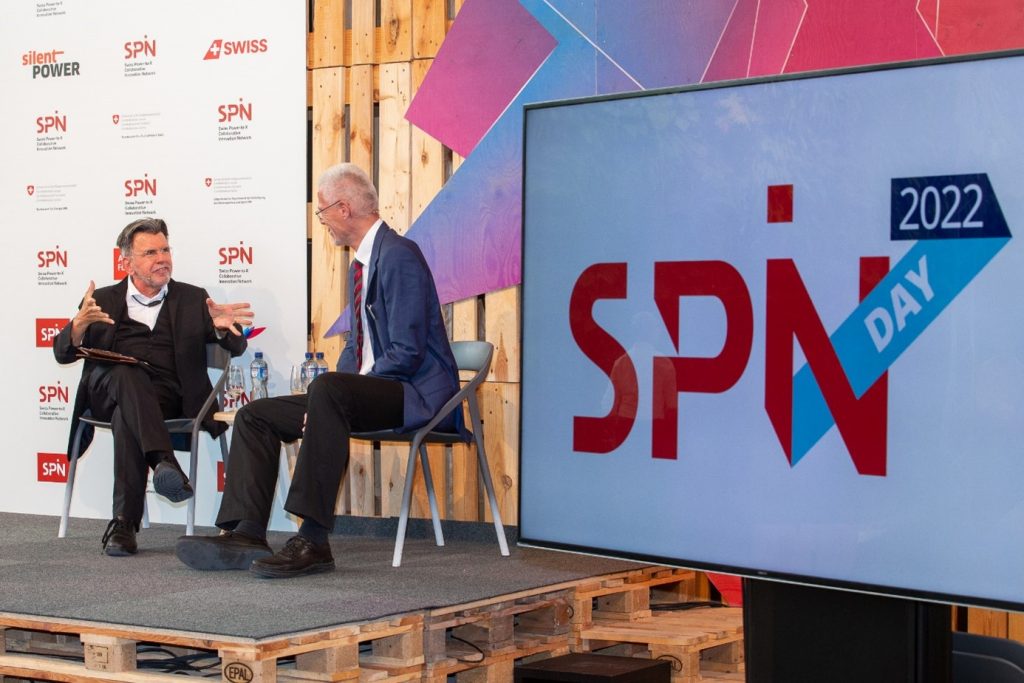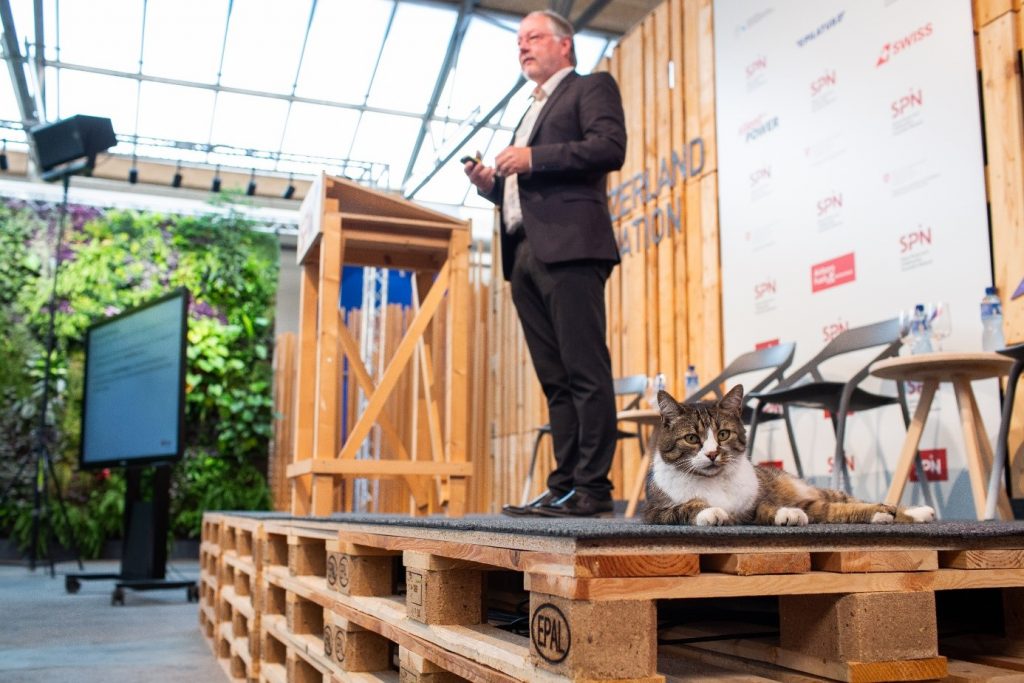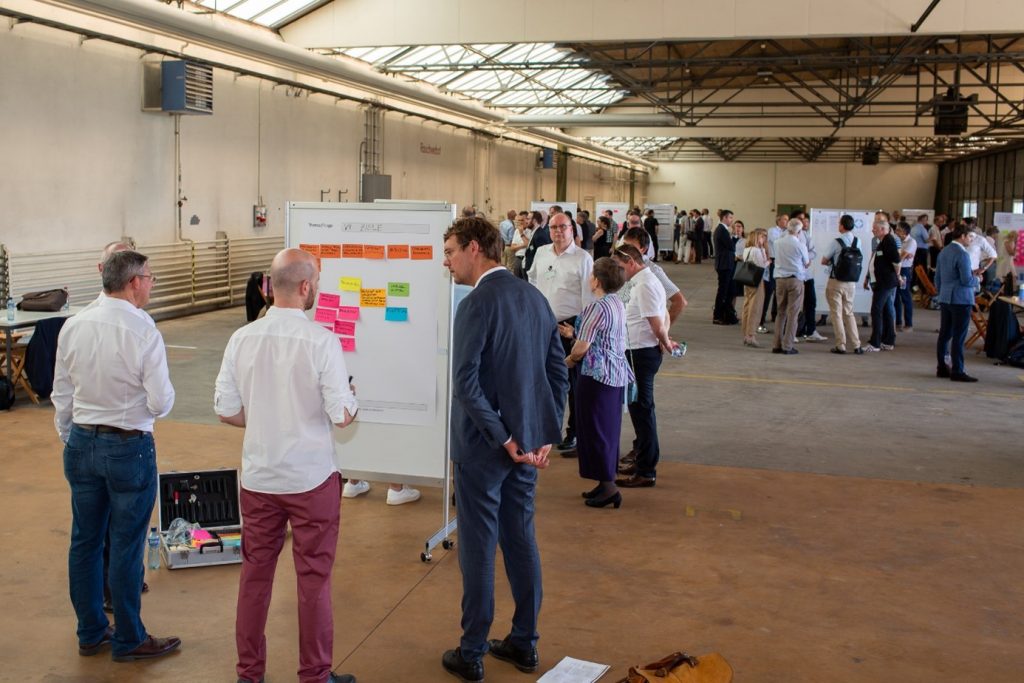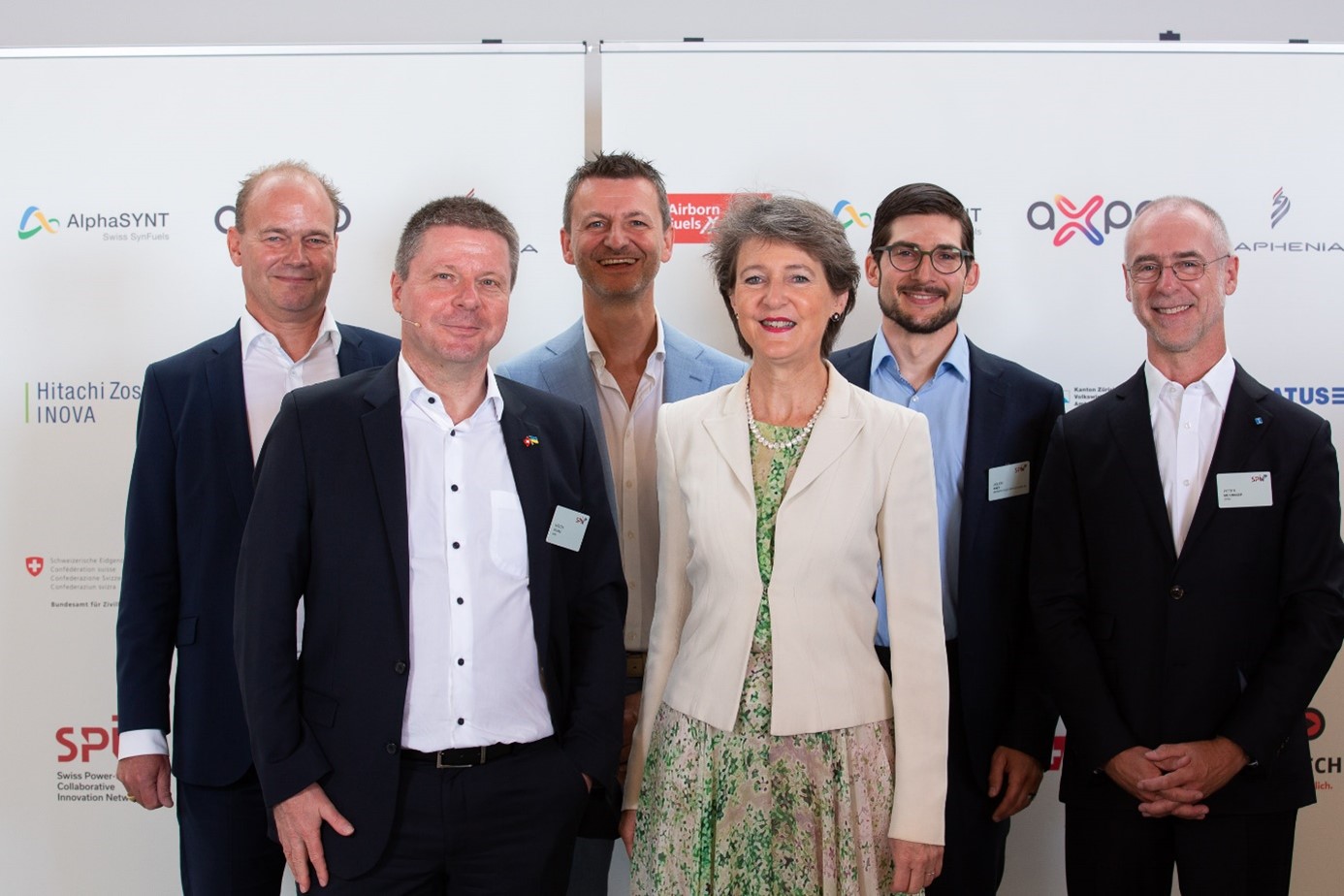Navigation menu
- Education
- Emissions & Air Quality
- Infrastructure & Services
- Meteorology & Climate
- News
- Physical Chemistry
- Projects
Climate change will only be successfully tackled if a drastic reduction in emitted greenhouse gases can be fulfilled. This goal can best be reached by both decarbonizing all energy sectors and reducing the energy demand of our society.
To this end, Switzerland aims at rapidly expanding the capacity of green energy production, with a strong emphasis on solar and wind energy. Solar power, however, comes with an inherent problem: The yield is much higher in summer than in winter. So: How do you store the potential energy surplus from summer into the winter season? Among different solutions, Power-to-X (PtX) stands out.
PtX describes any process allowing the conversion of electric energy to other energy carriers like heat, liquid or gaseous fuels, or chemicals. PtX technologies allows coupling many different sectors together. As an example, PV overproduction in summer may be used to produce hydrogen which can be reused in winter – either by combustion or with fuel cell technologies.
But there is more: PtX technologies have the potential to move our society to a low carbon world. Formulated in a highly simplified way, CO2 produced e.g. from fermentation of biological waste can be captured, mixed with green hydrogen, and eventually synthesized to sustainable methane, methanol, road fuels or aviation fuels (SAF).
Up to now, there is still quite some room considering the overall efficiency of this conversion process, limiting the profitability of synthesized fuel production.
All over the world, numerous research units have been addressing this shortcoming for years and are working towards higher efficiencies of e.g. electrolysis, CO2 capturing, or liquid fuel production processes. A few products have reached a high enough TRL to be scaled in first pilot plant projects.
Yet, regulatory and especially financial hurdles remain high – especially in Switzerland. This is the reason why Julien Anet, together with his colleagues Martin Bäumle, Alex Gantner, Andre Heel and Peter Metzinger, founded the Swiss Power-to-X Collaborative Innovation Network – SPIN.
SPIN believes in a carbon-neutral society and aims at boosting the collaboration between science, industry, society and politics, acting as a powerful catalyst within the PtX-world. SPIN wants to accelerate the development of Swiss PtX technologies and aims at addressing the urgent need for efficiency increase for e.g. SAF production, but also for new innovative integrated energy management solutions. We are convinced that all these steps will allow new PtX technologies to quickly reach market maturity, allowing for a sustainable and climate-neutral future of our society – and a strong Swiss cleantech economy.
On the 23rd of June, the first SPIN day took place in the Swiss Innovation Park in Dübendorf. Initiated with a motivating speech from Swiss Federal Council Simonetta Sommaruga and the Director of Economics of the Canton of Zurich Carmen Walter Späh, an impressive line-up of early PtX adopters (e.g. Swiss International Airlines), innovative PtX Spin-Offs (e.g. Synhelion AG) and PtX experts (e.g. Christian Bach) proved the conference attendees that the PtX future is indeed bright and very realistic, yet still full of challenges to be overcome.


Within two workshops sessions, different questions were addressed, allowing the participants to experience a first taste of what SPIN means by “collaborative”.
Of course, the SPIN day was complemented with networking sessions, were – so the rumour – different collaborations within the PtX sectors were envisaged.

The first step is taken. SPIN has taken off. It will now aim at catalyzing Swiss-made PtX innovations allowing to aim for a sustainable world for the generations to come. Let’s build this new world – together!
